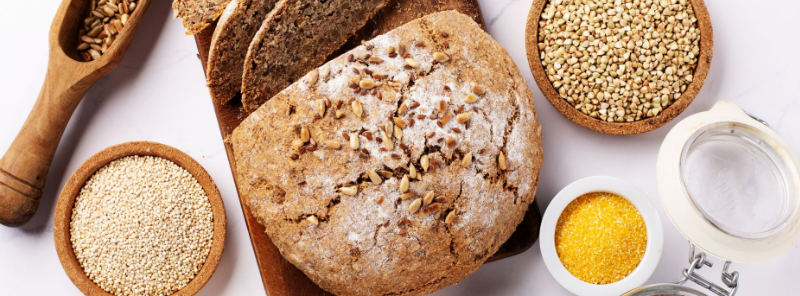The Surprising Link Between Food Sensitivities and Weight Loss
Losing weight can be a challenging journey, and sometimes, no matter how much effort you put in, the scale refuses to budge. While diet and exercise are critical factors, there’s another often-overlooked culprit that could be sabotaging your weight loss goals: food sensitivities. These sensitivities, while not as severe as food allergies, can have a significant impact on your body’s ability to shed pounds. In this blog, we’ll explore how food sensitivities affect weight loss, the symptoms to look out for, and strategies to identify and manage them to help you achieve your goals.
What Are Food Sensitivities?
Food sensitivities occur when your body reacts negatively to certain foods. Unlike allergies, which cause an immediate immune response, food sensitivities often lead to delayed and subtler reactions, making them harder to identify.
Common Triggers of Food Sensitivities:
- Gluten
- Dairy
- Eggs
- Soy
- Corn
- Nuts
- Nightshade vegetables (e.g., tomatoes, peppers)
- Artificial sweeteners and additives
How Food Sensitivities Can Sabotage Weight Loss
1. Inflammation and Fluid Retention
When you consume a food that your body is sensitive to, it can trigger chronic low-grade inflammation. This inflammation not only disrupts your digestion but also causes water retention, making you feel bloated and heavier.
- Impact on Weight Loss: Chronic inflammation can lead to hormonal imbalances, particularly with cortisol (the stress hormone), which promotes fat storage, especially around the abdomen.
2. Disrupted Digestion
Food sensitivities can wreak havoc on your gut, leading to symptoms like bloating, gas, diarrhea, or constipation.
- Impact on Weight Loss: Poor gut health can hinder nutrient absorption, which affects your metabolism and energy levels. If your body isn’t efficiently processing food, it’s harder to burn calories and lose weight.
3. Increased Cravings
Certain food sensitivities, especially to sugar and processed carbs, can create a cycle of cravings. Your body may develop an addictive-like reaction to these foods, making it difficult to resist them.
- Impact on Weight Loss: Consuming more of these trigger foods can lead to overeating, excess calorie consumption, and weight gain.
4. Slowed Metabolism
Chronic inflammation caused by food sensitivities can interfere with your thyroid function, which plays a crucial role in regulating metabolism.
- Impact on Weight Loss: A sluggish metabolism burns fewer calories, making it harder to create the calorie deficit needed for weight loss.
5. Fatigue and Low Energy
When your body struggles to process certain foods, it diverts energy to deal with the inflammation and digestion issues. This can leave you feeling fatigued and unmotivated to exercise or stay active.
- Impact on Weight Loss: Reduced physical activity means fewer calories burned, slowing down your progress.
How to Identify Food Sensitivities
Identifying food sensitivities is key to addressing the barriers they create for weight loss. Here’s how to get started:
1. Keep a Food Diary
Track everything you eat and note any physical or emotional symptoms that follow. Look for patterns that point to specific trigger foods.
2. Try an Elimination Diet
Remove common trigger foods from your diet (such as gluten, dairy, and soy) for 2-3 weeks. Then reintroduce them one at a time, observing how your body reacts.
3. Consult a Healthcare Professional
Food sensitivity tests, like IgG blood tests, can help identify problematic foods. Working with a nutritionist or doctor can provide clarity and tailored advice.
Managing Food Sensitivities for Weight Loss
Once you’ve identified your trigger foods, here are some practical steps to manage them effectively:
1. Avoid Trigger Foods
Eliminating the foods your body doesn’t tolerate is the most effective way to reduce inflammation and improve digestion.
- Example Substitutes: Use almond or oat milk instead of dairy, or try gluten-free bread and pasta if you’re sensitive to gluten.
2. Focus on Whole Foods
A diet rich in whole, unprocessed foods supports gut health and minimizes exposure to additives and preservatives that may trigger sensitivities.
- Key Foods to Include: Vegetables, fruits, lean protein, whole grains, and healthy fats like avocados and nuts.
3. Heal Your Gut
Improving gut health can help reduce the severity of food sensitivities and improve weight loss.
- Probiotics and Prebiotics: Add yogurt, kefir, sauerkraut, or fiber-rich foods to your diet.
- Digestive Enzymes: These can help your body break down difficult-to-digest foods.
4. Stay Hydrated
Water helps flush out toxins and reduce bloating caused by food sensitivities.
5. Regular Exercise
While food sensitivities can drain your energy, even light exercise like walking, yoga, or swimming can improve circulation and support weight loss.
When to Seek Help
If you’ve tried managing food sensitivities on your own but still struggle with symptoms or weight loss, consider reaching out to a healthcare provider. Persistent symptoms could indicate other underlying issues, like irritable bowel syndrome (IBS) or autoimmune conditions, which may require specialized treatment.
Conclusion
Food sensitivities are an often-overlooked obstacle in the weight loss journey. By identifying and managing these sensitivities, you can reduce inflammation, improve digestion, and support your overall health. Weight loss becomes much easier when your body isn’t fighting against hidden food triggers.
Take control of your diet, listen to your body, and start making the changes that will help you feel and look your best. For more insights and more tips in our blog, explore ways to overcome common dietary challenges and achieve your goals.
FAQs About Food Sensitivities and Weight Loss
1. Can food sensitivities cause weight gain?
Yes, food sensitivities can lead to inflammation, water retention, and hormonal imbalances, all of which may contribute to weight gain or difficulty losing weight.
2. How long does it take to notice improvements after eliminating trigger foods?
Many people notice reduced bloating and inflammation within a week, but it may take several weeks to experience significant improvements in weight loss.
3. Do food sensitivities go away over time?
Some sensitivities may improve with gut healing and dietary changes, while others may persist and require ongoing management.
4. Are food allergies and food sensitivities the same?
No, food allergies trigger an immediate immune response and can be life-threatening, while food sensitivities involve delayed reactions and are typically less severe.
5. What’s the best diet for someone with food sensitivities?
A diet focusing on whole, unprocessed foods, rich in nutrients and free of your specific triggers, is ideal for managing sensitivities and supporting weight loss.



